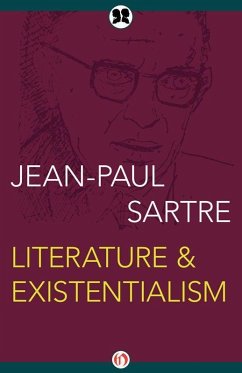In a probing philosophical exploration of the act of literary creation, Sartre asks: “What is writing?,” “Why write?,” and “For whom does one write?” After discussing existentialism as it pertains to art, human emotions, and psychology, French existentialist philosopher Jean-Paul Sartre turns the question of existentialism to the subject of literature by stating that he wishes to “examine the art of writing without prejudice.” Sartre eschews the idea of artists and writers comparing their works of art to one another; instead, he argues, “they exist by themselves.” Tying into his thoughts on literature, Sartre additionally delves into Marxist politics, the intellectual labor of the writer, the individual reader, and the reading public.
Hinweis: Dieser Artikel kann nur an eine deutsche Lieferadresse ausgeliefert werden.
Hinweis: Dieser Artikel kann nur an eine deutsche Lieferadresse ausgeliefert werden.









